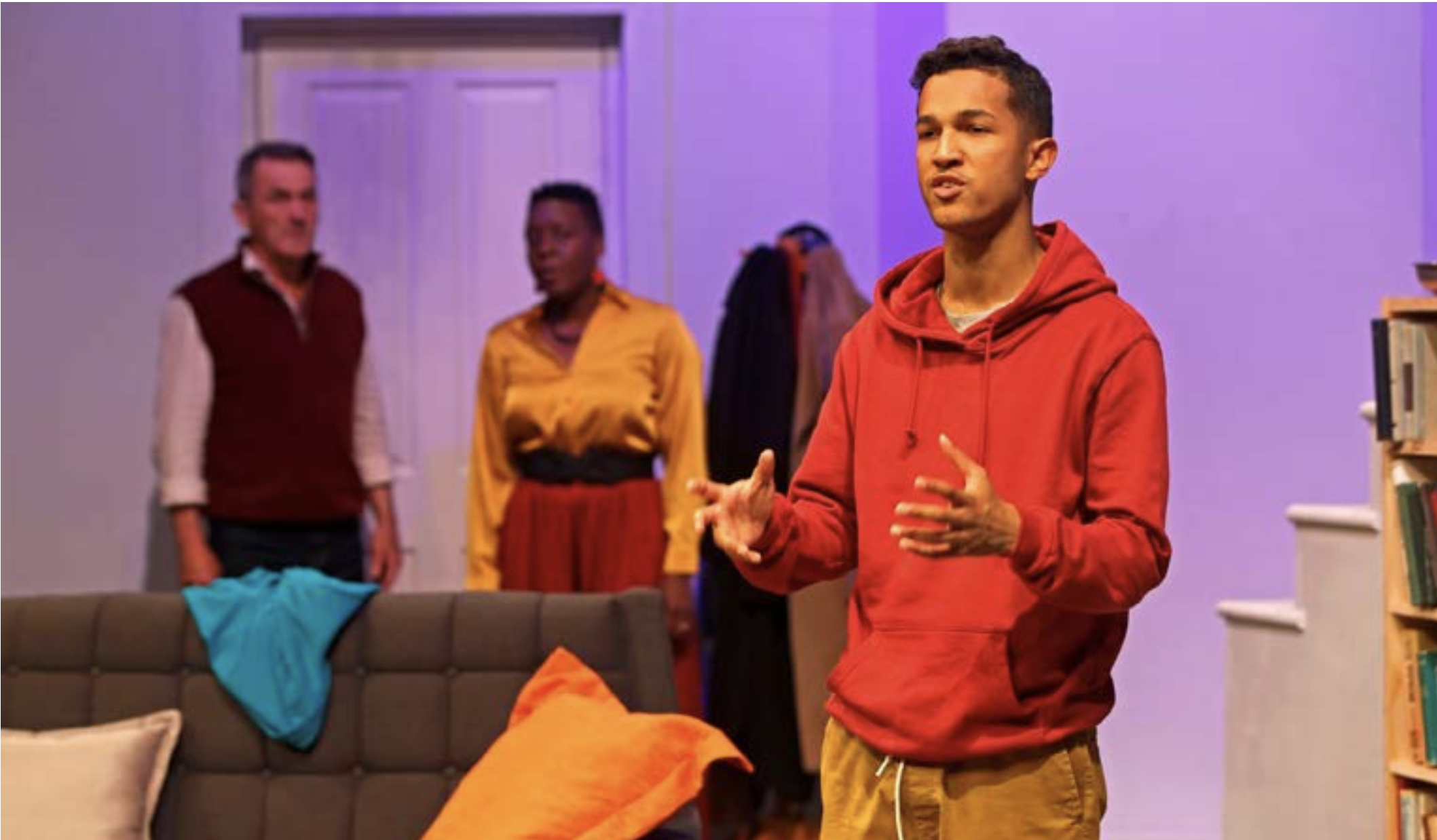By Jenna Kretzmann
‘Refugee’. A word loaded with undertones in today’s political climate. According to the United Nations, 1 in every 78 people on earth is forced to flee their home countries. Think about that next time you sit in a theatre with 500 plus seats.
Acclaimed South African playwright and novelist, Nadia Davids, premiered her latest play, Hold Still, at the Baxter Theatre last year. To our luck, the production graces the stage of this year’s National Arts Festival to filled auditoriums, bristling to see Andrew Buckland and Mwenya Kabwe perform live one again.
Hold Still is a rigorous and honest contemplation of the histories surrounding displacement and migrancy, while unpacking the generational traumas and disorientating effects the past place on communities and individuals alike. Davids writes in response to the refugee crisis, also described as the “refugee eugenics” within the script, and hostilities which arose during Brexit. She was dismayed by the government’s response and moved by the stories of ordinary people assisting refugees. Birthed out of this inspection, the four characters of Ben (Buckland), Rose (Kabwe), Oliver (Lyle October), and Imraan (Tailyn Ramsamy) were born – all with their own emotional debris of dispersion.
The play is set over one life-changing night which questions everything each character has come to know about safety, loyalty, understanding and politics.
Ben and Rose Feigel are an interracial and intercultural couple. They seem as one would expect a liberal North Londer couple to present; outspoken, discursive, and with a bookshelf packed with quirky literature. Although their differing backgrounds present their own set of clashes, what is soon brought to the forefront are their shared, yet completely different, experiences of exile.
Rose was born in apartheid South Africa but fled to the U.K. only five years later with her freedom-fighter parents. Ben is the son of a Polish immigrant who escaped Nazi rule on Kindertransport. Their son, Oliver (yes, he is named after Oliver Tambo), is the product of suffocating ancestral traumas. He behaves as any teenager would; full of angst. Oliver is argumentative, moody, dismissive, and hungry… all the time. However, he possesses an inherent empathy for, and a subconscious understanding of, the underdog. This is how he comes to know Imraan, a Middle-Eastern refugee, forced into unimaginable circumstances.
Under the direction of Jay Panter, the production is exceptionally tight. The performers all appear well-acquainted with the stage, and embody their characters with respect and understanding. The set, under design of Patrick Curtis, is striking. In the upstage centre, we see a set of stairs reminiscent of those in the Truman Show, with projections to match – interpret the symbolism as you wish.
Although the production experienced a few opening night glitches, such as the projector’s text being visible on stage and the sound of an iPhone ‘ping’ echoing sporadically throughout the speakers, Hold Still holds strong.
It is said that creativity takes courage. Hold Still certainly exceeds itself in prowess through its honest and mostly poetic script. It is a testament to the power of theatre to be attentive to history, and its echoes into the future, while remaining firmly rooted in contemporary ways of seeing.


